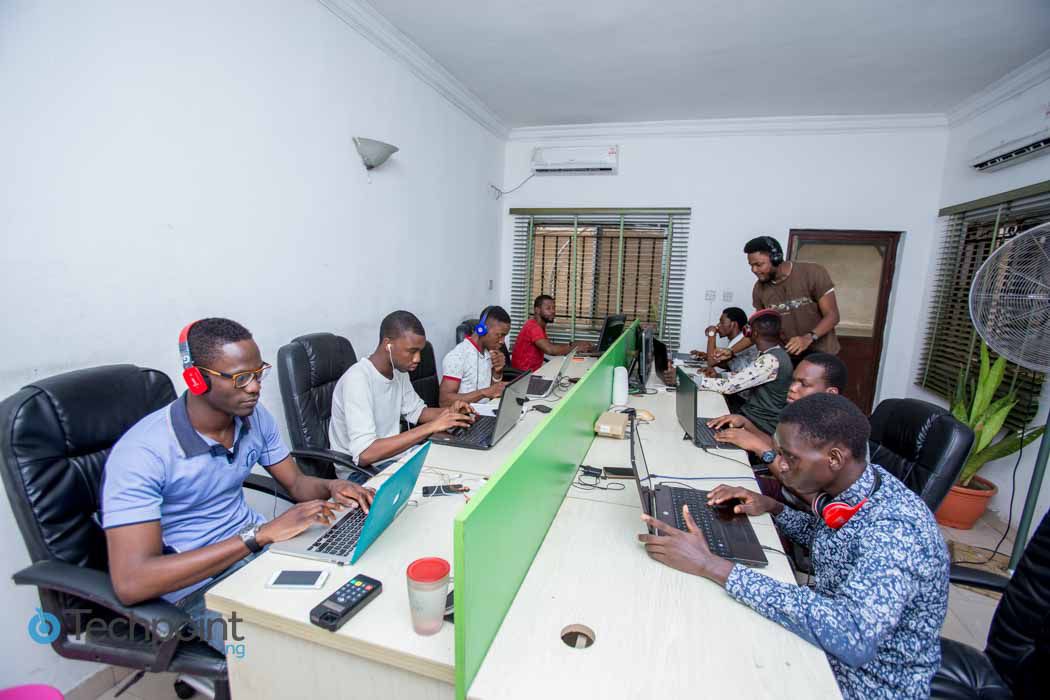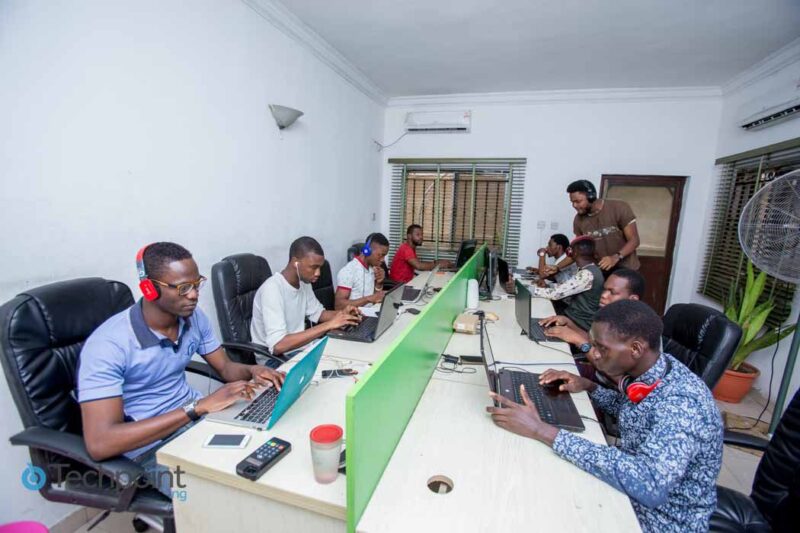
For years, the traditional 9–5 was the ultimate goal. Many Nigerians dreamed of landing office jobs in banks, oil companies, or government institutions. Work meant presence, showing up, dressing up, and often, putting up with long commutes and rigid routines.
However, over the past five years, that mindset has shifted completely. The rise of remote jobs, digital skills, and online platforms has introduced a new kind of freedom, one powered by tech.
Before Tech: The Traditional Nigerian 9–5 System
Before the tech boom, work in Nigeria was defined by structure. You woke up early, battled traffic, and worked under close supervision until closing time. Productivity was often measured by visibility, your boss seeing you at your desk, rather than results.
The dream job was often tied to prestige: banking, oil and gas, or telecoms. Most offices operated on paper files, held face-to-face meetings, and required physical signatures. Working remotely was almost unimaginable. Even flexible hours were rare because the belief was simple: you had to be there to work.
That system built discipline and order, but it also created stress, burnout, and limited career flexibility. Many Nigerians spent years in jobs they didn’t enjoy simply because “it’s stable.”
How the Pandemic Triggered the Tech Transition
Then came the pandemic. In 2020, offices shut down and companies across Nigeria were forced to adapt overnight. Zoom meetings replaced boardrooms. Microsoft Teams, Slack, and Google Workspace became essential. Suddenly, employees who had never worked from home were setting up makeshift offices in their living rooms.
For the first time, employers realised that productivity didn’t always depend on physical presence. Staff completed tasks, hit deadlines, and kept operations running, all from home. This shift introduced Nigeria to a remote work culture in full.
Hybrid jobs also began to rise. Many organisations, especially in the tech and finance sectors, now allow employees to work both remotely and on-site. This balance has changed expectations; people now seek flexibility, not just a paycheck.
RELATED: 5 Side Hustles You Can Earn From Using AI
Post-Pandemic Nigeria: The Tech-Driven Workforce
Following the pandemic, Nigeria’s workforce didn’t return to its previous pattern. The country witnessed a rapid rise in digital jobs and tech-enabled careers. Fintech startups like Paystack, Flutterwave, and Moniepoint have proven that Nigerian professionals can compete globally using technology.
The demand for digital skills exploded. More Nigerians started learning coding, UI/UX design, content creation, and social media management. Platforms like Coursera, Udemy, and YouTube have become virtual classrooms. It no longer mattered if you had a university degree; what mattered was skill.
A new kind of worker was born: self-taught, flexible, and globally connected. This digital shift reshaped employment and opened opportunities that once felt far away.
The Rise of Freelancing and Dollar-Paying Jobs
One of the most significant outcomes of this transition is the rise of freelancing in Nigeria. Platforms like Upwork, Fiverr, and Toptal have become doors to international clients who pay in dollars.
Thousands of Nigerians now earn a living through digital services, including writing, designing, coding, virtual assistance, and content marketing. These platforms have made it possible to work from anywhere, build online portfolios, and receive direct payments into digital accounts through Payoneer, Deel, or Wise.
Many young Nigerians are now choosing freelancing as their primary source of income. They are no longer limited by the naira’s volatility or local job scarcity. Earnings in dollars provide financial stability and the freedom to work with multiple clients simultaneously.
Social media has also become a career platform. LinkedIn, Twitter (X), and TikTok now serve as job boards and personal branding tools. A well-written LinkedIn post or viral tweet can land a Nigerian freelancer a foreign client.
What Nigerians are Saying
We spoke to some Nigerians and here’s what they have to say:
-
Thanau Abass, a product designer, shared how remote work changed her daily life:
“I’m a mum and working remotely has made life a lot easier for me because I get to be present in my son’s life and also have time for other things.”
-
For some, the transition to remote work has been life-changing in terms of achieving a better balance and increased productivity.
Bisola Adeniyi, a virtual assistant, said:
“I honestly don’t think I can go back to the traditional mode of work again. I’ve realised you can be productive even without being in the four walls of an office.”
-
Nathan Ebojaye, a system administrator, works hybrid and sees both sides:
“I work hybrid — two days on site and three days at home. I honestly wouldn’t mind going fully remote if I had the opportunity. However, I still believe people need to be at the office once in a while to keep them on their feet. People can’t work without supervision; they’ll most likely abuse it.”
-
Not everyone has that freedom, though.
Aina Adeniyi, a civil servant, explained how government work still demands presence:
“The stress of jumping buses to and from work is enough stress in itself, but government work doesn’t permit you to. It requires your physical presence all the time.”
These experiences aren’t just statistics; they’re real stories from Nigerians adapting to this new way of work.
From Offices to Opportunities
Technology has quietly transformed Nigerian work culture, shifting offices into online platforms and empowering employees to become entrepreneurs. The 9–5 may not disappear completely, but it now shares space with remote jobs, freelancing, and digital entrepreneurship.
The Nigerian worker of today is not confined to a desk. With a laptop, the right skills, and an internet connection, they can work from anywhere and earn money from everywhere. The new work culture is flexible, borderless, and driven by technology. And in many ways, it’s just getting started.








